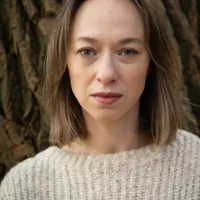“… each sound, each structure is a promise …” – Gottfried Michael Koenig
Sonology is the field of study involving production, research and experimentation in the field of electroacoustic music, computer music and sound art. Instead of composing with sounds, as is generally the case in music, in sonology the sound itself is composed in such a way that it gives expression to musical form. This can take place on the basis of the physical principles of sound, on the basis of perception, or on the basis of purely compositional ideas.
The Institute of Sonology adopts a clear stance in terms of the use of technology in music: we believe that technology is not merely an adjunct to the existing music practice, but should be used primarily to explore new forms of composition and public presentation of music and art. At the same time, Sonology is not bound by any stylistic dogmas.
We offer
- a unique combination of technological and artistic resources and expertise
- highly qualified international teaching staff
- the opportunity to join an international community of active artists and musicians of more than 30 different nationalities
The Institute of Sonology has an extensive network of partners that includes the Groupe de Recherches Musicales (GRM) in Paris, the Netherlands Music Institute (NMI), Willem Twee Studios in Den Bosch, the Sonic Acts festival, the Technische Universität Berlin and the Game of Life Foundation.
As a student in the two-year Master of Music in Sonology (which is taught in English) you will carry out an independent research project. You can enrol for the master’s programme if you have obtained a Bachelor of Music in Sonology or an equivalent degree. However, the master’s programme is not an extension of the bachelor’s programme. Many students in the Master of Music in Sonology programme hold a bachelor’s degree from other educational institutions in subjects such as composition, computer science, musicology, or graduated as performing musicians.
During your master’s course you will write a thesis, which will document your project and place it in a wider context. This means that, in addition to your artistic activities, you will be writing extensively under the guidance of our teachers.
We also maintain a close relationship with our alumni, some of whom remain attached to the institute or continue their research as a PhD student elsewhere.
Many graduates of the Sonology master’s programme pursue a career as a composer, an artist, a sound designer, a computer programmer, a teacher, or combinations of these. A relatively large proportion of graduated students go on to follow a PhD programme.
Since 2014, we also offer a Double Degree master’s programme in Audio Communication & Sonology in association with the Technische Universität Berlin.
Read more about the department and its educational programmes at sonology.org
Teachers
Specifications
Language
English
Duration
2 years
Degree
Master of Music in Sonology
Tuition fee
Check 'Tuition fees'
Department head
Kees Tazelaar
Coordinator
Orsolya Toldi: mail














